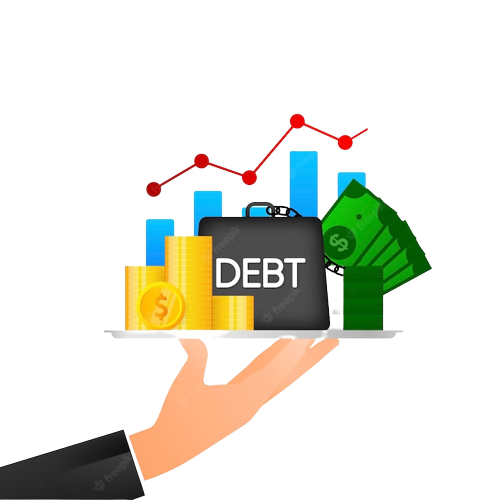Credit card debt is money that you borrow from a credit card company and owe back, usually with interest. When you use your credit card to make purchases or withdraw cash, you are borrowing money from the credit card company. You’ll need to pay back this money, plus any interest that accrues, by the due date each month. If you don’t pay your balance in full by the due date, you’ll be charged interest on the unpaid balance.
Credit card debt can be expensive, especially if you have a high interest rate. It’s important to be mindful of your spending and to pay off as much of your balance as possible each month to avoid accruing a lot of debt. If you have a large balance or a high interest rate, it may be helpful to consider transferring your balance to a card with a lower interest rate or seeking help from a non-profit credit counseling agency.
Managing credit card debt can be a challenging task, but there are a few strategies that may help you get your debt under control:
- Make a budget: It’s important to know how much money you have coming in and going out each month. This will help you prioritize your expenses and make sure you’re not overspending.
- Pay more than the minimum payment: The minimum payment on your credit card is the smallest amount you can pay each month to avoid late fees. While paying the minimum payment is better than nothing, it usually only covers the interest on your debt, so you’re not making a dent in the actual balance. Try to pay as much as you can each month to reduce your debt more quickly.
- Consider a balance transfer: If you have a high-interest credit card, you may be able to save money by transferring your balance to a card with a lower interest rate. Just be sure to read the terms and conditions carefully, as balance transfers often come with fees.
- Seek help if necessary: If your credit card debt is overwhelming and you’re having trouble making payments, it may be time to seek help. Consider reaching out to a non-profit credit counseling agency, which can help you create a debt management plan and negotiate with your creditors to lower your interest rates and monthly payments.
Remember, it’s important to address your credit card debt as soon as possible, as it can have a negative impact on your credit score and overall financial health.
Credit Card Debt Solution
If you are struggling with credit card debt and are having difficulty making your monthly payments, there are a few options that may be able to help:
- Non-profit credit counseling: Non-profit credit counseling agencies offer free or low-cost services to help you manage your debt. They can help you create a budget, negotiate with your creditors to lower your interest rates and monthly payments, and develop a debt management plan.
- Debt consolidation: Debt consolidation involves taking out a loan to pay off multiple debts, such as credit card balances. The goal is to have a single monthly payment at a lower interest rate, which may make it easier to manage your debt.
- Debt settlement: Debt settlement involves negotiating with your creditors to agree to accept less than the full amount you owe as payment in full. This option may be a good choice if you are unable to pay your debts and are at risk of default. However, debt settlement can have a negative impact on your credit score and may not be an option for everyone.
- Bankruptcy: Bankruptcy is a legal process that allows you to eliminate or restructure your debts. While bankruptcy can provide relief from overwhelming debt, it is a serious step that can have long-term consequences, including a negative impact on your credit score.
It’s important to carefully consider your options and speak with a financial professional or a non-profit credit counseling agency before making any decisions about how to manage your credit card debt.

